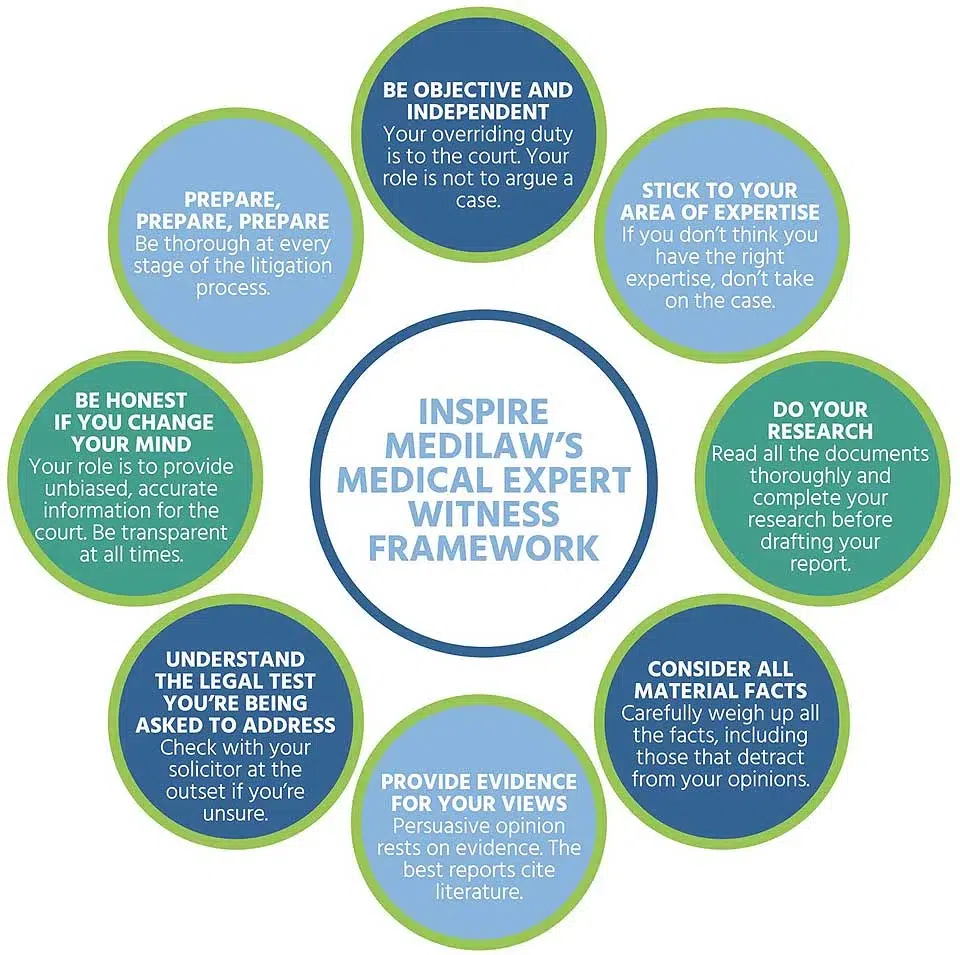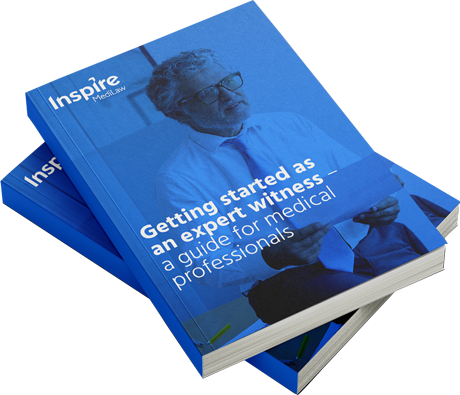A medical expert witness is a healthcare professional who provides an impartial medical opinion to the court on the facts in clinical negligence and personal injury cases.
Expert witnesses are indispensable to the legal process when it comes to helping the court understand the medical and clinical evidence. As an expert, your evidence will be crucial in determining the outcome of a case.
Expert witnesses are involved in a range of tasks, including:

Lawyers look for a wide range of skills and attributes in a medical expert witness, including:

We’ve put together an aide memoire detailing the key points you need to bear in mind when you’re completing medical expert witness work.

Healthcare professionals who act as expert witnesses are expected to undertake specific training and continuing professional development (CPD) in this area, as outlined in the latest guidance from the Academy of Medical Royal Colleges.
Formal expert witness accreditation is also increasingly recognised within the industry and Inspire MediLaw offers a dedicated scheme.
Contrary to popular myth, you don’t need a legal qualification to take on expert witness work. However, you will need a good working knowledge of how to address the legal tests (the Civil Procedure Rules and Practice Direction 35). On our two-day expert witness training programme, we cover all the legal rules you’ll need to know and how to apply these rules to clinical negligence and personal injury cases.
There are many ways to find work as a medical expert witness:
Get our free guide with top tips on how to get started as a medical expert witness. This guide is packed with useful advice and information from healthcare and legal professionals who’ve worked in the industry for many years.
We also run a one-day programme, ‘How to start, build and run your medico-legal practice’. This course is designed to equip you with practical knowledge to get your business off the ground.
